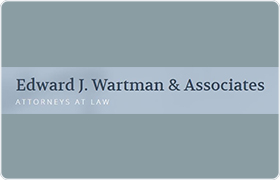East Chicago Bankruptcy Lawyer, Indiana
Sponsored Law Firm
-
 x
x

Click For More Info:
-
Edward J. Wartman & Associates
516 East 86th Avenue Merrillville, IN 46410» view mapBankruptcy & Debt Law Highest Quality of Legal Services
At Edward J. Wartman & Associates Our experience runs deep and our successes are numerous, yet our motivation is simple.
219-791-1520
Includes: Bankruptcy Litigation, Commercial Bankruptcy, Consumer Bankruptcy, Dissolution
Morton L. Efron
Estate Planning, Family Law, Contract, Bankruptcy
Status: In Good Standing Licensed: 62 Years
 Edward Wartman Merrillville, IN
Edward Wartman Merrillville, IN
